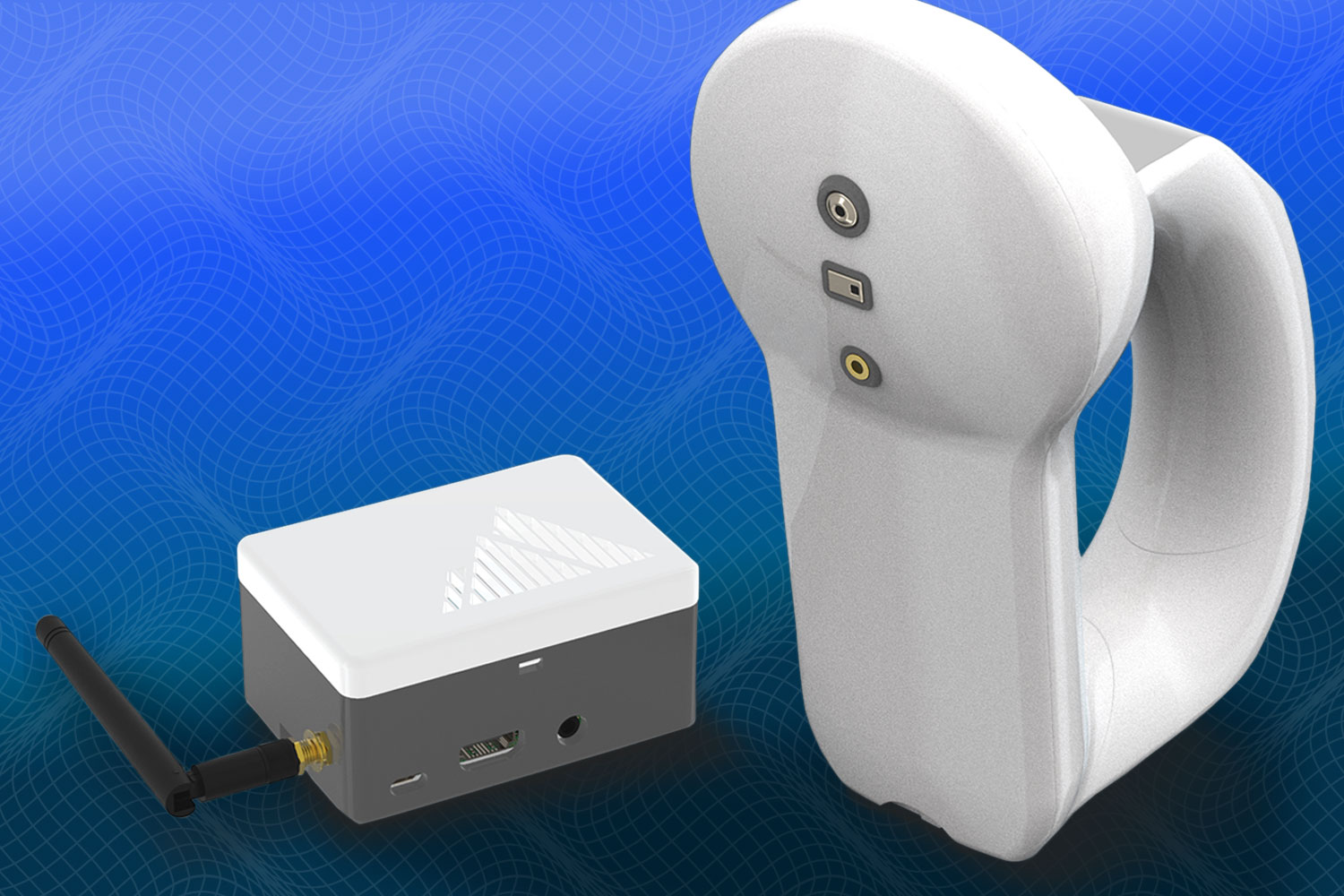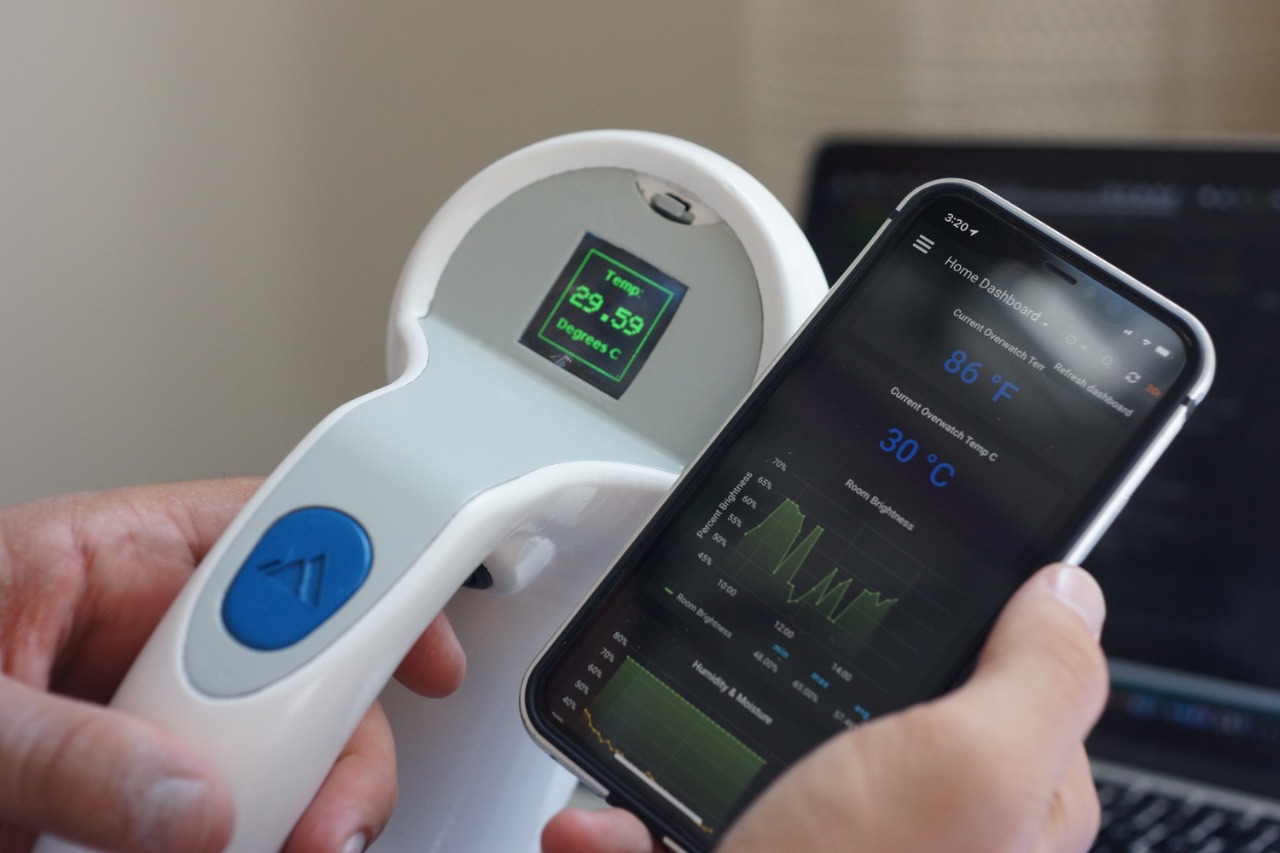COVID-19 Open-Source Innovation: Project Theia
The COVID-19 Detect and Protect Challenge is crowdsourcing open-source hardware innovations to tackle the disease. Every one of the 300+ innovations submitted is made freely available, with all instructions needed for others to build them. Here, we talk to Grand Prize Winners Josh Thomas and the Karakoram Team behind Project Theia.
Tell us about your solution. How does it address a specific need around COVID-19 response/recovery?
The Theia platform collects real-time, on-the-ground, contactless body temperature information using custom-built contactless smart thermometers. Using multiple sensors, the Theia platform – and accompanying dashboard - can detect sudden changes in the average body temperature of a community. This information can be used to prompt further investigations from health professionals. The platform offers lower-income countries, with minimal healthcare infrastructure,uneven telecommunications networks, and disparate populationsa solution to effectively monitor and respond to the pandemic . It could even be scaleable, with other sensors able to be modified to provide data for the platform.
What was the inspiration behind the project?
With the onset of COVID-19, the Karakoram team wanted to support low-and-middle-income countries in their fight against the virus. Rather than focusing on 'technology-first' solutions, Theia was inspired by a fundamental problem: a lack of real-time health data, a less-extensive healthcare system, and uneven telecommunications networks. In this context, our team wanted to focus our skills and experience to build a low-level emergency health data layer, and telecommunications network. This could be used to monitor the spread of the disease, and transfer key health data to decision-makers in government. Our internal requirement was that this tool had to be made using open-source tools – and able to be manufactured and deployed in-country quickly, cheaply, and efficiently. We focused our efforts on building the underlying process – and accompanying tools -of data collection, data transmission, and data storage -in a rapidly-evolving situation.

The Theia thermometer prototype
Why do you think open-source is so important in responding to COVID-19?
With COVID-19, time is of the essence - especially as global supply chains of component parts have become strained (or broken). To place lifesaving tools where they are most needed, engineering and innovation firms should embrace the potential of open source. Open-source development allows manufacturing to occur in-situ in the countries and communities that will be most impacted by the pandemic. In relation to open-source, the Karakoram team was excited by the added challenge of designing a professional-level tool. One that could be deployed immediately on-the –ground, designed using easy-to-find components, requiring only basic 3D printing, and able to be cheaply and easily assembled anywhere. These considerations were front-of-mind at every step of the way - from component selection, shell printing and manufacturing, and even to our assembly choices. For example, we used 3D-printed clips rather than glue or screws.
What is the impact you hope to achieve with this solution?
We hope that the Theia platform is manufactured and used as a first-line tool for creating an underlying real-time health data layer. We would also be excited to begin on-the-ground trials with partners, in collaboration with local communities. This would give us insights for improvements, allowing us to rapidly prototype and iterate with end-users. In the future, we could also potentially include blood oximeter sensors, or even sewage-based viral tracker sensors within the platform.
What is one solution in the #COVID19DetectProtect challenge that you wish you'd built and why?
There were several fascinating solutions submitted to the Hackster challenge, particularly ones using sensors - including low-cost blood oximeters and others. We hope that there are opportunities to collaborate with other Hackster teams to build robust and open-source health data sets for affected countries, curated and organised by both the UNDP Global Centre in Singapore, and in partnership with UNDPCountry Offices.
About Team Theia: Team Theia at Karakoram is comprised of creative lead Anurag Kurapati, a Senior Industrial Design major at Pratt Institute of Design in Brooklyn, NY, and Andrew Osula, a professional Architect in London who jointly handles the industrial design and mechanical engineering. Leading the team is Josh Thomas, Founder of Karakoram, who developed the software and hardware.

 Locations
Locations